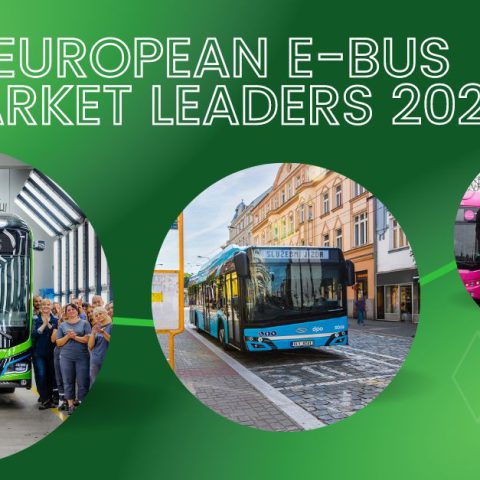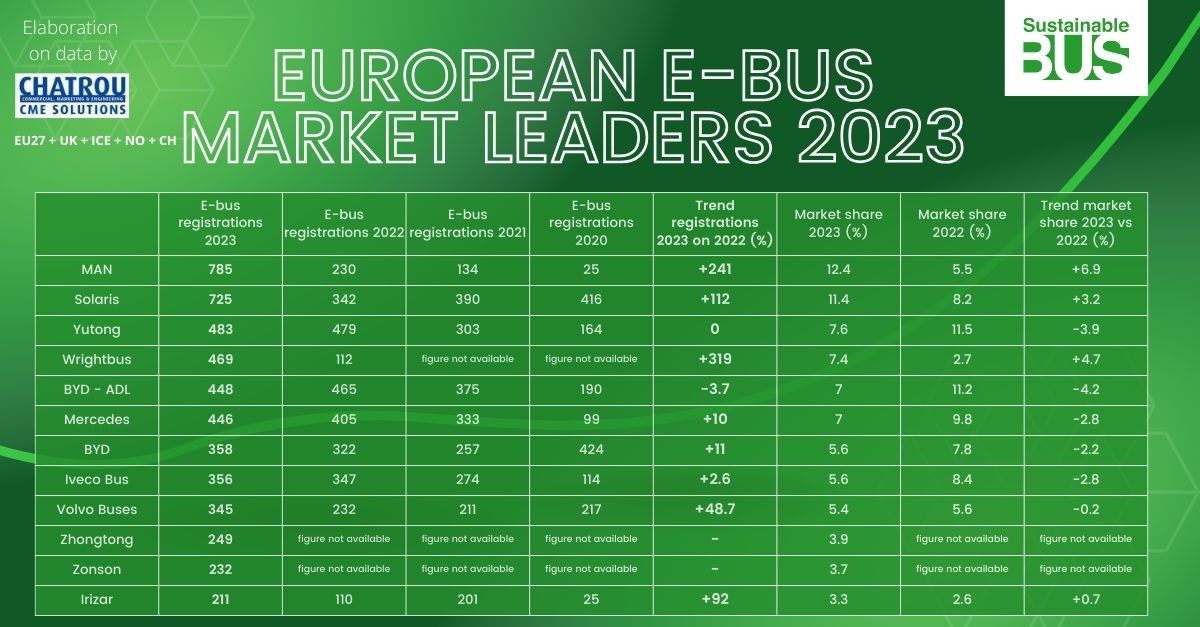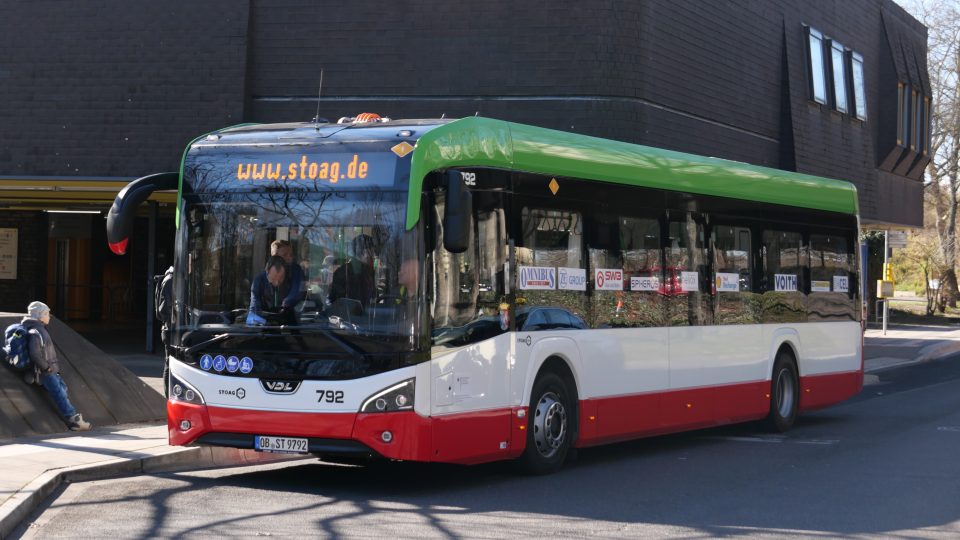42% of the city buses registered in Europe in 2023 are zero emission
The European e-bus market saw a 53% growth in registrations last year: in 2023 as many as 6,354 were registered in EU27 + Norway, Iceland and Switzerland. Over 42% of city buses were zero-emission (BEV and Hydrogen), quickly growing from 15% in 2020 (tripling in three years). Overall, 13,466 buses with alternative drivelines were registered, […]

The European e-bus market saw a 53% growth in registrations last year: in 2023 as many as 6,354 were registered in EU27 + Norway, Iceland and Switzerland. Over 42% of city buses were zero-emission (BEV and Hydrogen), quickly growing from 15% in 2020 (tripling in three years).
Overall, 13,466 buses with alternative drivelines were registered, reflecting a 41% increase from the previous year, according to figures by Chatrou CME Solutions.
MAN, Solaris, Yutong and Wrightbus on top
MAN, as the group has already announced in the past weeks, emerged as the market leader in electric buses, followed by Solaris, Yutong (that had been in top position in 2022), and Wrightbus. The latter experienced a significant growth, up 320% on 2022. The only brand having a decrease of volumes in 2023 is the joint venture between Alexander Dennis – BYD.
Solaris also leads in zero-emission buses (then including also fuel cell buses), with 802 vehicles registered 2023. Over the past 12 years, 19,000 electric buses have been registered, with Solaris (again!) holding the top spot with 2,188 units.

Electric bus market 2023, UK leads
6,354 e-buses over 8 ton registered in 2023 represent, as mentioned in the opening, a 53% increase on 2022, that ended with 4,152 units (it was 3,282 in 2021, with a growth of 48% on 2020).
The UK leads in electric bus deployment, with 1,206 units registered in 2023, followed by Germany, Norway, and Spain, up 260% on the 136 units registered in 2022. The most growing country is Portugal, where 364 e-buses were registered vs the 52 of 2022. Also Belgium grew a lot, from 42 to 172 (+309%).
Hybrid bus registrations saw a significant increase: “Absolute volume of Hybrid buses doubled from 2.018 in 2022 to 4.022 in 2023; a plus of 99,3%! This is caused by growth of about 1000 buses, both in the city bus segment as in the intercity segment”, Chatrou CME Solutions notes. Such growth is largely due to deployment of mild hybrid vehicles.
On the other hand, gas-powered buses faced a decline in the urban segment. The consultancy stresses that “Absolute volume of CNG/LNG buses dropped slightly from 3.274 in 2022 to 2.883 in 2023 (-11,9%). CNG-share in the interurban segment is still growing from 978 in 2022 to 1.187 in 2023″.
Meanwhile, hydrogen-powered buses witnessed a notable surge, with Solaris leading with 77 registrations in 2023 and a total fleet of 181 buses, surpassing Van Hool and Wrightbus. With a record total of 207, the volume was more than double the volume of 99 from 2022 and also higher than the previous record year 2021 (158).







